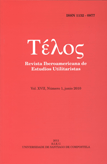Profesor titular de Sociología de la Cultura en la Universidade da Coruña. Sus estudios están publicados en una extensa variedad de monografías, capítulos de libros, revistas científicas y actas de congresos. Entre sus publicaciones, destaca una monografía, editada por la Fundación Caixa Galicia, y varios capítulos de libros editados en Ariel, Xerais, Netbliblo, y artículos en revistas como ROTUR y Revista Galega de Ciencias Sociais. Actualmente, sus principales líneas de investigación se relacionan con la cultura, el patrimonio, la identidad y el turismo. También ha sido Director del curso-proyecto Aulas no Camiño durante catorce años, en el que han participado destacados profesores españoles y extranjeros. Ha sido coordinador del Máster en Patrimonio y Bienes Culturales, y es Profesor, desde sus inicios, del Máster en Turismo de la Universidade da Coruña. Colaborador en diferentes periódicos y medios de comunicación. Conferenciante en distintas instituciones científicas y sociales. Su obra literaria, en gallego, está publicada en diversos libros y revistas.
Profesor titular de Sociología de la Cultura en la Universidade da Coruña. Sus estudios están publicados en una extensa variedad de monografías, capítulos de libros, revistas científicas y actas de congresos. Entre sus publicaciones, destaca una monografía, editada por la Fundación Caixa Galicia, y varios capítulos de libros editados en Ariel, Xerais, Netbliblo, y artículos en revistas como ROTUR y Revista Galega de Ciencias Sociais. Actualmente, sus principales líneas de investigación se relacionan con la cultura, el patrimonio, la identidad y el turismo. También ha sido Director del curso-proyecto
Aulas no Camiño durante catorce años, en el que han participado profesores españoles y extranjeros. Ha sido coordinador del Máster en Patrimonio y Bienes Culturales, y es Profesor, desde sus inicios, del Máster en Turismo de la Universidade da Coruña. Colaborador en diferentes periódicos y medios de comunicación. Conferenciante en distintas instituciones científicas y sociales. Su obra literaria, en gallego, está publicada en diversos libros y revistas.






